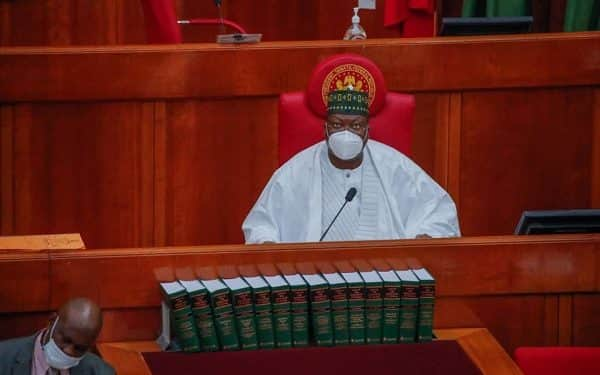
Barring any last-minute changes, the Senate is set to advise the Federal Ministry of Finance, Budget and National Planning to exclude 60 federal agencies from getting allocation from the national budget, starting from next year.
The agencies include Federal Inland Revenue Service, Nigeria Customs Service, Security and Exchange Commission, National Broadcasting Commission and Oil and Gas Free Trade Zone Commission.
The move, Sunday PUNCH gathered, was due to the conviction that the agencies generate enough revenue to fund their overheads and payment of salaries, and would therefore not need to be funded from the national budget.
Investigations by one of our correspondents on Friday indicated that the Joint Committee on Finance and National Planning had concluded plans to include the proposal in its report which would be submitted to the Senate at plenary on resumption on September 15.
The joint panel on Tuesday concluded a five-day interactive session with the various Federal Government revenue generating agencies based on the 2021-2023 Medium Term Expenditure and Fiscal Strategy Paper.
The panel, in most of its engagements with the heads of the agencies, expressed disappointment with their poor revenue profile, huge wage bill and poor remittances to the Consolidated Revenue Fund account.
The Chairman of the joint committee, Senator Solomon Adeola, told the heads of the agencies after the session that many of them had no business receiving allocation from the federation account.
He said the Senate would work out an arrangement to amend the Fiscal Responsibility Act that would stop the agencies from spending the money they generate as they pleased.
He said some of the agencies like the Oil and Gas Free Trade Zone Commission, had willingly pulled out of being funded from the federal budget, meaning they would no longer collect allocation for salaries and overhead from the federation account.
A member of the joint committee told our correspondent on condition of anonymity on Friday that the panel had identified 60 agencies that would henceforth be funding the national budget and be responsible for their overheads and salaries of their workers.
He said the affected revenue generating agencies cut across the agriculture, aviation, communications, education, energy, environment, health, maritime, media and science and technology sectors of the economy.
He said, “We want to put an end to indolence and wastage of revenue. Many of the agencies have more than enough to remain on their own but they are still being funded from the national budget. We are doing this in the interest of Nigerians because we are tired of passing budgets that are not implementable due to deficit.”
Adeola, in his reaction, did not confirm the exact number of agencies that would exit the national budget but said some had willingly agreed to pull out of being funded from the budget and that their list had been compiled.
He said apart from those who would be placed on zero allocation, some would henceforth bear their overheads and cost of executing capital projects.
He stated, “We have invited all revenue generating agencies and ministries that are directly affected to ask questions bothering on the document before us and to deliberate on how we can improve the revenue of the Federal Government.
By Sunday Aborishade











